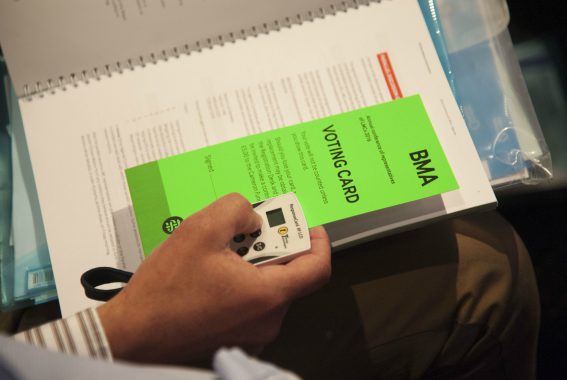GP leaders will be voting on whether non-GPs should be actively encouraged to become partners in an effort to sustain the partnership model, at the UK-wide LMCs Conference next month.
The agenda also contains a motion urging the BMA’s GP Committee ‘to petition the Government for less adversarial approach to adverse events’, in light of the Dr Bawa-Garba case, which saw a junior doctor struck off after being charged with gross negligence manslaughter.
Representatives from LMCs across the UK will gather in Liverpool on 9 March to vote on what will become GPC UK policy.
GPs in Hampshire and Isle of Wight have proposed the motion to ‘encourage non-GP staff to become partners to further increase the sustainability of the partnership model’, adding that the model is ‘the most efficient and cost-effective way of delivering general practice’.
This comes after the health secretary announced a review into partnership model, alongside the BMA and the RCGP.
However, practice managers have long been able to take on the role of partner, with a Pulse survey finding that 4% of practice managers had reached partner status in 2013.
Meanwhile, GPs in Avon have issued a motion concerning ‘the number of gross negligence manslaughter trials which involve members of the medical profession’ and called on the GPC to discuss a ‘less adversarial approach’ to patient deaths that ‘recognises the importance of system failures’.
Earlier this month, the health secretary ordered a ‘rapid review’ into the use of manslaughter charges against doctors to create ‘clarity about where the line is drawn between gross negligence manslaughter and ordinary human error’.
The agenda also includes several motions on workload as part of a ‘themed debate’ calling on the GPC to ‘invest time in defining “safe working levels” for GPs’, with GPs in Sandwell calling for ‘13 consultations per session in 2018, falling to 9 consultations, each of 15 minutes duration by 2020’.
This comes as Pulse revealed that the BMA is working to draw up guidance to help GP practices manage their workload to safe limits, enabling GPs to set a capacity limit on the number of patients seen in a day.
Local GP leaders will also raise concerns about high levels of practice closures, and new online GP services that ‘cherry pick the patients to whom they offer services’.
Other motions to be debated include urging the GPC to examine the new Scottish contract, looking at how elements of it could be incorporated into the English contract negotiations.
The new Scottish contract, which was green-lit by GP leaders in January, will see GPs directly reimbursed for practice and staff expenses, a move away from GPs owning premises and a focus on the GP as an expert medical generalist at the head of a multidisciplinary team.
Contract negotiations in England are still ongoing, with Pulse reporting last week that the GPC had told GPs at their ‘roadshow’ events that they can expect ‘minimal changes’ to their contract from April.

















